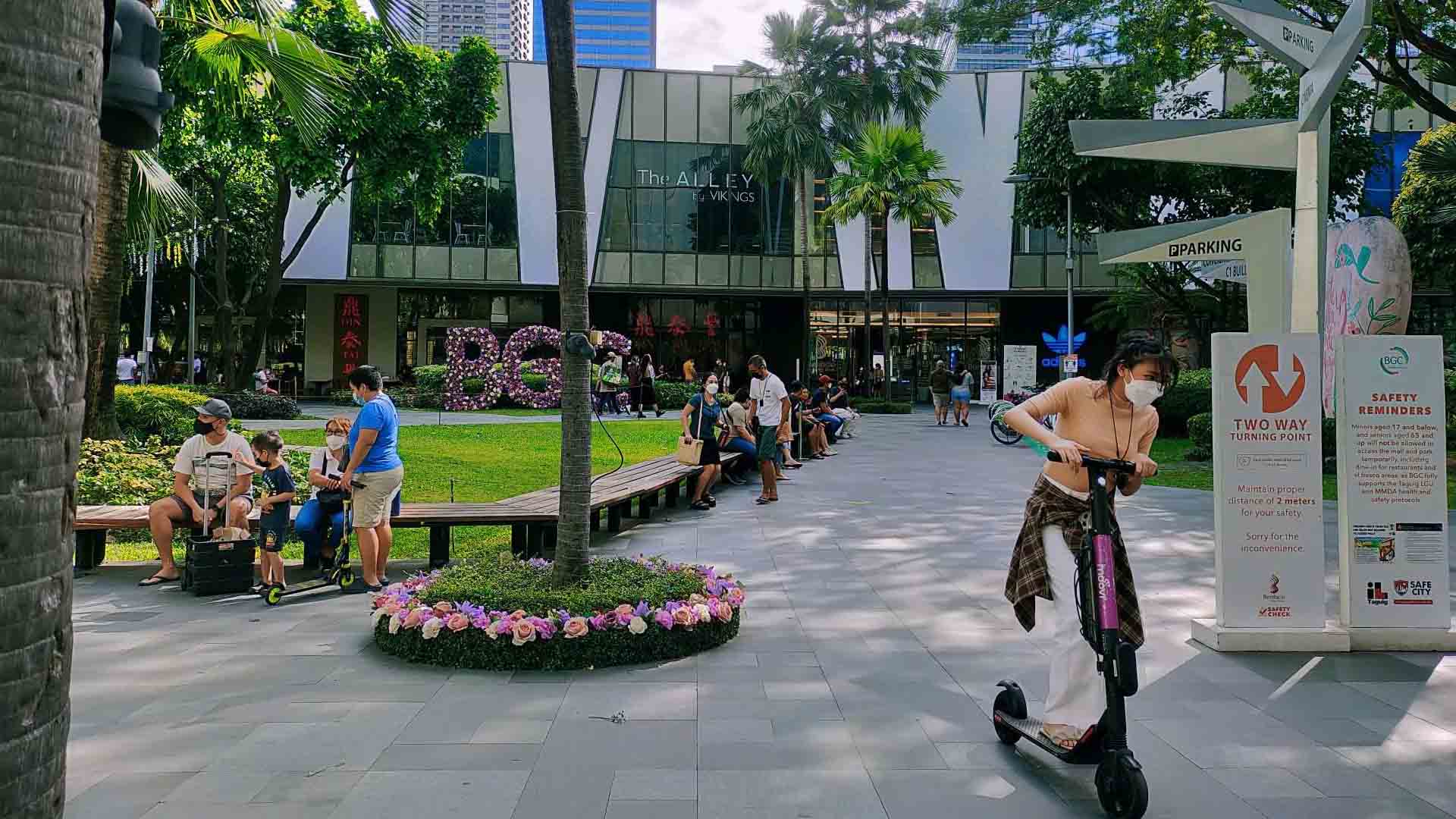The Metro Manila Council (MMC) has made an official recommendation to place the National Capital Region (NCR) under the least restrictive Alert Level 1 beginning March 1 as Covid-19 cases continue to fall in the capital and most of the country.
In a virtual briefing on Wednesday, Metropolitan Manila Development Authority (MMDA) officer-in-charge and General Manager Romando Artes said the recommendation has been sent to the Inter-Agency Task Force for the Management of Emerging Infectious Diseases (IATF) and was unanimously agreed on by the MMC—composed of the 17 mayors in the NCR.
“The resolution was already sent to the IATF earlier today. The basis of the MMC to ease the restrictions in the region is to open up the economy to ensure job generation,” Artes said.
He said the positivity rate in NCR has dropped to 4.64 percent, “way below” the 5 percent standard of the World Health Organization (WHO).
The data he used was gathered by the Department of Health (DOH) and was based on the distribution of RT-PCR tests done and positivity rates by local government units (LGU).
As of Monday, the healthcare utilization rate (HCUR) and Covid-19 bed utilization rate in the NCR are on a downward trend at 24.8 percent.
He noted that there was no notable spike of Covid-19 cases despite the ongoing political activities in preparation for the 2022 elections such as motorcades and caravans.
To address the possible surge in vehicular volume in NCR roads, he said the MMDA is eyeing the expansion of the modified Unified Vehicular Volume Reduction Program (UVVRP) or number coding scheme to include morning rush hour.
To date, the UVVRP is only implemented on weekdays except for holidays, from 5 p.m. to 8 p.m., and only applies to private vehicles.
“We are studying to widen the coverage of our modified number coding scheme from 7 a.m. to 9 a.m. I have met with the district heads of our Traffic Discipline Office. Based on their assessment, from 10 a.m.-5 p.m., a light traffic situation is observed on major thoroughfares,” Artes said.
He said there are currently no plans on implementing the number coding scheme for whole days due to lack of public transportation.
Up for IATF discussion
Meanwhile, the Department of the Interior and Local Government (DILG) said the MMC resolution will be tackled in Thursday’s meeting of the Inter-Agency Task Force for the Management of Emerging Infectious Diseases (IATF).
“The MMC resolution was submitted to IATF and it will be a subject for discussion at the IATF meeting tomorrow (Thursday). Its consequent effect on election campaign activities shall also be tackled and considered. We have yet to listen also from our health experts on the latest data analytics on the Covid-19 situation in the NCR,” DILG Secretary Eduardo Año said in a message to reporters.
Año, however, said the wearing of face masks will remain mandatory under Alert Level 1.
“Wearing of face masks will still be required at any alert level while the use of face shields will be required at Alert Level 4 and 5,’’ he said.
The Department of Health (DOH) earlier said the mandatory wearing of face masks will be the last health protocol to be scrapped even as the country continues to see declining coronavirus cases.
The Philippine National Police (PNP), meanwhile, said it is ready to implement new security and health protocols in the event that Alert Level 1 will be declared in some areas.
“The most lenient Alert Level 1 will open prospects for more economic activities by lifting some restrictions on venue capacities, but the minimum public health standard is still in effect,” PNP chief, Gen. Dionardo Carlos said in a statement.
Under Alert Level 1, there will be no age restrictions for those who will move around in public places including interzonal travels, subject to LGU rules.
Earlier, the IATF placed the NCR and several other regions under Covid-19 Alert Level 2 from February 16 to 28.
Under Alert Level 1, all establishments will be allowed to operate at full capacity except in areas under granular lockdown.
Activities at full-seating capacity can also be conducted indoors as long as minimum health standards remain observed.
“We have observed major improvements in our efforts to curb the spread of the coronavirus as reflected in the decreased number of cases and hospital utilization rate with increased vaccination coverage. The situation is better now because of the discipline that the public is showing. We expect to observe the same attitude even if the health protocol will be relaxed,” Carlos said. (PNA)







